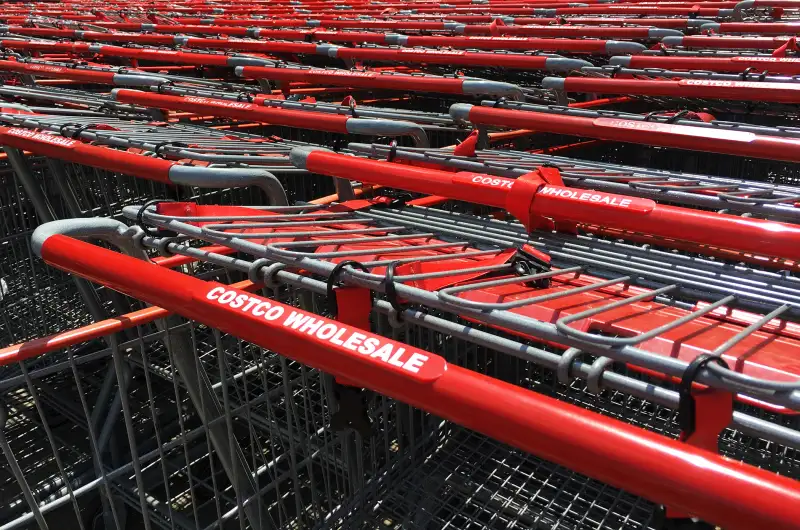Why Amazon's Whole Foods Deal Will Hit Costco the Hardest
Money is not a client of any investment adviser featured on this page. The information provided on this page is for educational purposes only and is not intended as investment advice. Money does not offer advisory services.

Amazon delivers everything fast — including bad news to its rivals.
Less than a week after the online giant stunned Wall Street by acquiring the organic grocery giant Whole Foods, shares of competing food retailers remain slumped on fears that Amazon is going all in on groceries.
Surprisingly, though, it's not the world's biggest retailer Walmart that's taking the real beating. It's the niche-oriented membership club Costco — which like Amazon is headquartered in the Greater Seattle area — whose stock is taking it on the chin.
A few month's ago Costco was feeling pretty good.
The wholesale discount club, with more than 700 cavernous depots spread out largely in the U.S. and Canada, delivered strong earnings, easing concerns that it would endure a fate similar to other big box retailers like Macy’s or Staples. Costco, it seemed, could count on its nearly 90 million loyal members to show up in person to shop in bulk despite continued pressure from e-commerce convenience and pricing.
Then Amazon bought Whole Foods for $14 billion, and investors ran for the exit. Costco has dropped more than 10% over the past week, and two analysts recently downgraded the stock over fears that Amazon will use its new investment to take over the fragmented $800 billion grocery market, just as it dominates book sales and general merchandise.
According to CNBC, Deutsche Bank analysts noted that Amazon's Whole Foods' acquisition was "a game changer" for Costco as increased competition for food sales, coupled with Costco's lagging digital strategy, is "putting membership renewal at risk for decline."
Making matters worse: Surveys show there's a great deal of overlap between Costco membership holders and Amazon Prime members, who get expedited delivery on online purchases. One Morgan Stanley study found that 45% of Costco warehouse members also were Amazon Prime members, according to the Seattle Times.
Already, there's speculation that Whole Foods could give Amazon Prime members a host of benefits — not unlike Costco memberships.
To be sure, Costco is hardly a dying business. The Issaquah, Wash-based retailer took in $119 billion in revenue in 2016, only $17 billion less than Amazon, and has added an average of 25 locations a year since 2012. More than a million square feet of earth is dedicated to Costco warehouses.
The company’s membership ranks have swelled, too, reaching nearly 90 million, with a 90% retention rate. Membership fees comprise nearly three-quarters of Costco's revenue, and this customer loyalty will be counted on after Costco raised dues by $5 to $60 a year in June.
Analysts don't expect a major reaction since its customers, according to a 2015 demographic profile by credit agency Experian, have the disposable income to afford a slight fee increase – the median customer earns 44% more than the average American household.
Still, life might be coming at Costco fast.
Amazon’s purchase of Whole Foods exposed a nagging issue – online sales. When Deutsche Bank analysts downgraded the stock, they noted that Costco’s e-commerce sales grew by only 11% over the past year, compared to Wal-Mart’s 63%, which recently added Jet.com and men’s retailer Bonobos to boost deliveries.
There’s concern over Amazon's plans for Whole Foods. Will Jeff Bezos & Co. lower prices on organic kale and locally produced milk to take market share away from other low-margin supermarkets? How will other grocers react, including German discounters Aldi and Lidl who've recently entered the American market.
“Increased expansion by [Amazon] and online investment by [Wal-Mart] create an imperative for [Costco] to intensify its own investment in e-commerce,” noted Goldman Sachs analyst Matt Fassler.
